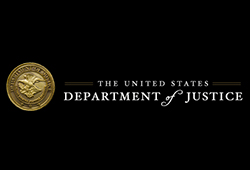 On December 28, the U.S. Department of Justice (DOJ) announced a $48 million settlement with a national mortgage lender, resolving allegations that the lender violated the False Claims Act by underwriting and endorsing Federal Housing Administration (FHA)-insured loans that failed to comply with FHA underwriting guidelines.
On December 28, the U.S. Department of Justice (DOJ) announced a $48 million settlement with a national mortgage lender, resolving allegations that the lender violated the False Claims Act by underwriting and endorsing Federal Housing Administration (FHA)-insured loans that failed to comply with FHA underwriting guidelines.
The settlement was the result of an investigation by FHA’s Department of Housing and Urban Development (HUD), the HUD Office of Inspector General, DOJ, and the U.S. Attorney’s Offices for the Eastern District of Michigan and Western District of Wisconsin.
According to the settlement agreement, between January 2006 and December 2011, the lender certified for FHA mortgage insurance certain mortgage loans that did not meet all FHA underwriting requirements, and that therefore were not eligible for FHA mortgage insurance. Specifically, the DOJ alleged that the mortgage lender failed to verify or document borrowers’ income and assets, and employed an underwriter compensation plan which expressly tied underwriter compensation to the percentage of loans approved by the underwriter and closed by the lender. The lender also allegedly used an automated process to populate its appraisal certifications with the signature of an underwriter, without ensuring that the underwriter had personally reviewed the appraisal report.
The DOJ also alleged that, despite internal reports that documented hundreds of materially-deficient mortgages and serious violations of FHA requirements, the lender did not comply with HUD’s self-reporting requirements. In fact, the lender allegedly self-reported only 3 mortgages to HUD between 2006 and 2011. Relatedly, the lender’s early-payment-default reviews and quality control reports were not consistently disseminated to senior management officials, who often only reviewed summaries of these reports prepared by a quality control manager.
The lender agreed to pay $48 million to resolve these allegations, and to identify and repay any unallowable costs the lender sought in connection with its prior submission of the FHA loans at issue. The settlement agreement also released the lender from liability for violations of the False Claims Act, Federal Debt Collection Procedures Act, and Financial Institutions Reform, Recovery, and Enforcement Act of 1989, and common law claims.
